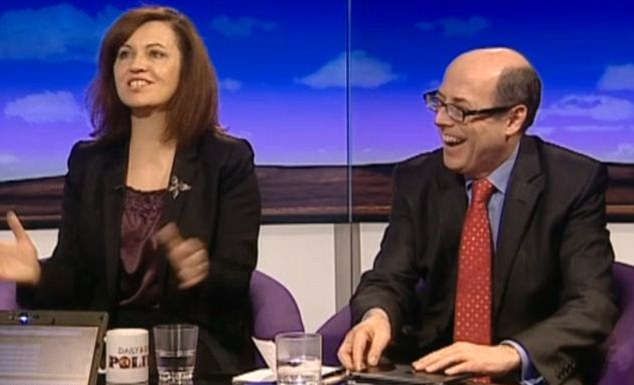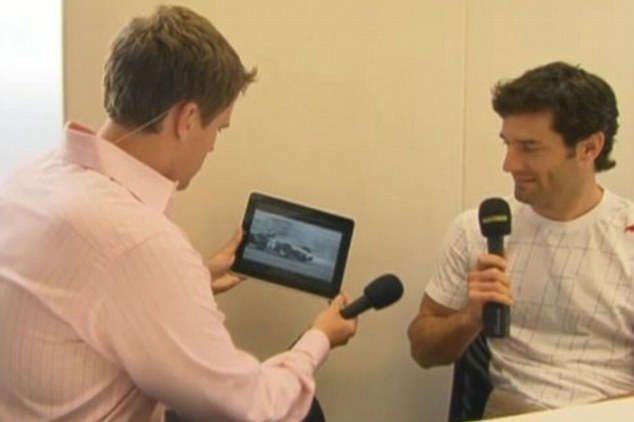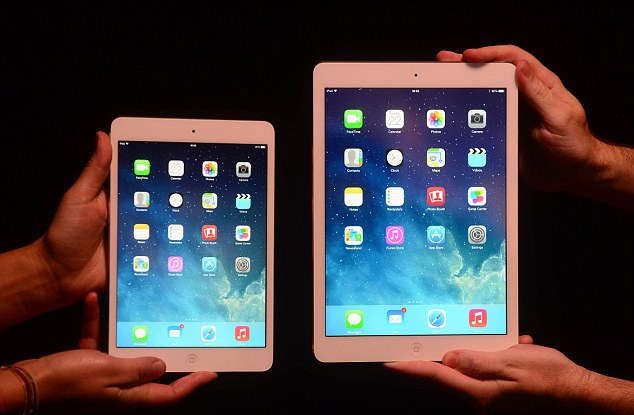The BBC have blown around £2.5million buying more than 4,000 iPhones, 400 iPads and 800 MacBooks for staff in the last two years, it can be revealed.
Presenters are regularly seen showing off their expensive Apple products on television – but the figures revealed thousands of off-screen staff are also getting hold of the gadgets.
The Corporation have been buying iPhones at a rate of 200 a month for the last two years – shunning dozens of cheaper mobiles.


The figures were today branded outrageous at a time when the BBC has complained that they have been forced to cut budgets because the licence fee has been frozen.
In total, they bought 4,266 iPhones, 427 iPads and 815 MacBooks between January 2012 and October 2013, according to figures released to MailOnline under the Freedom of Information Act.
The number of iPads bought was relatively low because the BBC only started buying them for staff in December 2012 – and have been purchasing them at a rate of more than 40 a month since then.
The estimated cost of purchasing the Apple products is around £2.5million – based on standard retail prices although the BBC get a discount.
However, the true cost of issuing staff with the gadgets will soar once the cost of mobile phone contracts with the Corporation’s network operator O2 are taken into account.

In addition, they are thought to have spent tens of thousands of pounds training staff how to use the gadgets.
Critics have accused the BBC of using Apple products as expensive on-screen props – and effectively giving the technology company free advertising.
BBC News presenter Simon McCoy baffled viewers last year when he accidentally picked up a pad of printer paper instead of his iPad while presenting a feature.
Viewers saw McCoy holding the packet in a full-length shot as he introduced a item live on the rollling BBC News channel about drunks being made to sober up in so-called ‘drunk tanks’.

The BBC said they are able to buy Apple products at a discount under a ‘major account pricing program’ with Apple Sales International.
Under the scheme staff can buy Apple gear from ‘nominated resellers’ although the level of discount varies according to product.
The BBC also has a ‘technology framework contract’ with French IT giant Atos which has supplied iPhones and Macs under a ‘third party’ deal.
Dia Chakravarty, Political Director at the TaxPayers’ Alliance, accused the BBC of advertising iPads on screen.
‘It’ll be hard to find a taxpayer who thinks spending their money on notoriously expensive tablets and phones are good value for the license fee, she said.
‘At a time when most people are having to tighten their belts, the BBC should reassess its priorities too and shop around for cheaper brands, instead of throwing pricey gadgets at their staff.
‘It’s quality programming that people want from the BBC, not a constant advertisement for the latest iPad.’
A spokesman for the BBC said that iPhones are only issued to staff who need them to do their jobs and they are not simply given out to all workers.
‘Technology is provided to staff who need it to carry out their work and they are advised on what provides the best value for money and best functionality for their work,’ he said.
‘The BBC uses a wide range of technology from a variety of manufacturers with Apple products making up less than 20 per cent of the BBC’s mobile, laptop and computer technology.’
